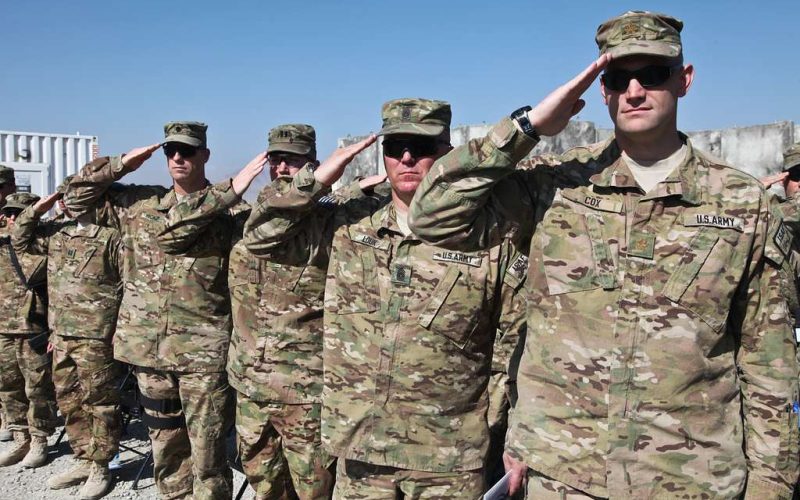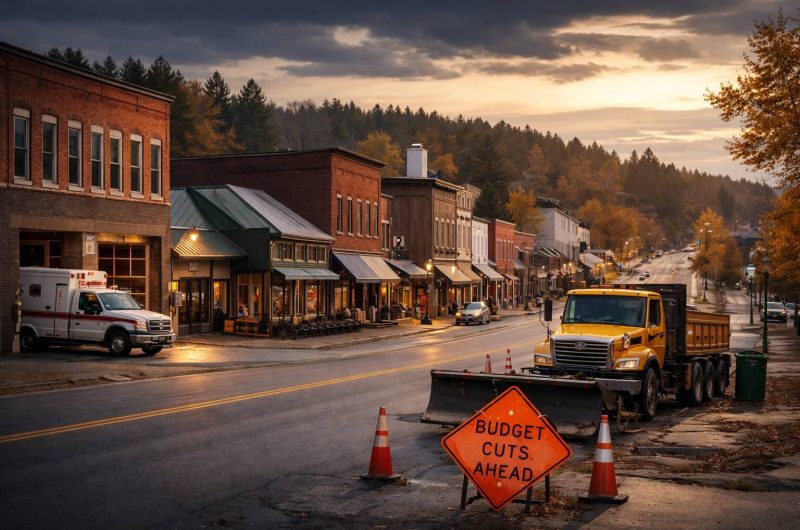Mandatory National Service
The opinions expressed in this publication are those of the authors, and do not necessarily reflect the opinions or views of Rural Insights or its members.

What does it mean to be an American citizen? Should public service be required of its citizens? A national discussion on this topic would be helpful today in bringing us together as a nation. We have spent the last few years very divided as Americans. A citizen discussion that would make us all think about what is important to our nation and what values we share as American citizens would be beneficial to all of us.
President Lincoln wrote that “Compromise versus conquest is key to American democracy. Make the good outweigh the bad. Every policy has good and evil in it and the job of public policy is to make sure the good outweighs the evil. American democracy is the world’s best hope.” That is still true today.
Having this debate in 2023 should be important to every American citizen.
Here are some options and thoughts to consider in this discussion. There are no correct or wrong answers, only thoughts to consider as we discuss what it means to be an American citizen and what should be the requirements of that citizenship.
Other countries require military service at age 18 or older. The United States had a military selective service draft for all men at age 18. One could seek a deferment but without that deferment, military service was required. The selective service draft was eliminated in June 1973. Today all men at the age of 18, must register with the US Selective Service in case a national draft is needed again. Women are still excluded from registering but legislation is pending in the US Congress to include them. This registration for men and women could be used as the basis for a mandatory national service requirement.
The question still remains today–should we have a national service requirement for all citizens, men and women, that is broader than just military service? Military service is an obvious and very important option that has been part of our nation since its founding. We can do more to make this option more attractive to young people and citizens of other ages. One example might be to fund the GI Bill for higher education after military service at a higher rate than is currently done. Another could be to spend more time and money on educating young people about what military service means as part of citizenship. What it could mean to their future development as leaders and citizens who contribute to American democracy.
Another option would be giving public service credit and enhanced higher education assistance in enrolling in the US Peace Corp, Teach America, and other similar national-type organizations. There are many other organizations that could be added to the list as we discuss the concept with our friends and neighbors–and our fellow citizens. We could spend more time and money educating young people about what public service means to their development as a citizen and to serving their nation.
We might also consider offering up these public service options and benefits beyond our “young people” category. Use the age limit to enlist in the military and Peace Corp as a cut off. Citizenship responsibility does not stop or start with 18 year-olds.
Adding these higher education and technical training program funding options will help not only with military recruiting but with other service entities. We have read recently that the US military and other national service organizations are having recruiting difficulties–this could help with that effort.
“Glory belongs to the act of being constant to something greater than yourself, to a cause, to your principles, to the people on whom you rely and who rely on you.” US Senator John McCain.
What does it mean to you to be an American? What should be the requirements of your citizenship? How can we best serve our nation and the world? How can we implement what you, your neighbors and fellow citizens decide are key to being a good citizen?
###
The author is the former President of Northern Michigan University where he also served as a Professor of Public Administration and Public Policy. He holds a Juris Doctorate from Western Michigan University Law School. He is a veteran of the US Air Force. He has served in the local, state and national levels as a volunteer and as a professional.
NOTE TO READERS: SO WHAT DO YOU THINK OF THIS OPINION PIECE? WE WANT YOUR OPINION ABOUT THIS ISSUE IN THIS OPINION PIECE.
Feb 11, 2023






As a 20 year federal employee and former tribal appellate judge…public service shouldn’t be compulsory. There should be incentives for public service…pensions, civil service protections, unions that can actually strike…would you want the surly teen who doesn’t want to be anywhere providing you customer service related to your social security processing? We could bolster the benefits of Americorps to achieve the ends mentioned here…reduced student loan forgiveness time for each year of service, social security credits for seniors for each year in the program…but compulsory service is the death of liberty.
Being asked to think about Mandatory National Service got my attention. I quickly had a long list of questions about how this would occur with the current mismatch of tasks that need to be done and people skilled to do the work; how this would connect with all of the current incentives regarding education and employment; how disabilities and health status would be part of the service development.
I decided that I needed to study current policy proposals. It was easy to find analyses by noteworthy think tanks. Today, I don’t know enough to have an opinion. I’ll be looking for opportunities to ask if mandatory national service is a reasonable responsibility for citizenship. What are both the duties and privileges of all citizens?
I’m curious where you found the Lincoln quote on ‘Compromise versus conquest’, which you employ near the top of this piece. I’d thought it sounds tather too contempory to have been penned by Lincoln, so I launched a search, but came up with empty handed. Might I ask, what is your source for it?
I would also like to see the source for this quote.
I think there’s a need for an equity component for such programs so all US-American citizens and residents can participate. Otherwise, making such services mandatory can reinforce current inequities. Such an idea may be useful for democratic community-building and sustainability if the organizers (the state? govt?) are committed to eliminating any social barriers as a component of that (mandatory) service. As a result, programs that make it easier to voluntarily participate may end up being successful without having to make the services mandatory. Taking care of our communities needs to become a regular part of social life AND also sustained through the institutional engagements (govt that is paid thru our taxes & social participation?) the people create for their communities. Nonetheless, we may also have to “reward” people for their participation– at least by socially reinforcing their efforts with a place-making t-shirt and free bottled water at each activity …. In addition, such social institutions as nonprofits, schools, healthcare, places of faith, etc., could commit (thru a community contract) to provide service(s) as part of their (paid) compact with residents.
There’s that “equity”factor popping up again. I think defining and administrating compulsory service is fraught with complications, both political and practical. What happens with single premature moms, those with debilitating physical or mental illnesses, those with felony convictions?
In general the concept of national service is noble. However DEI goals are already complicating our society to the extent it seems more divisive than most of us can remember. I think designing opportunities where national service carry incentives that make it attractive to young adults who are unsure which direction their lives should take are both practical and politically optimal.
Yes, the ideal that mixing together people from different regions and classes is beneficial, is in fact beneficial. The problem is two fold: where would you have the jobs and programs or even military roles that need filling and vast expansion of Federal spending to create new jobs, agencies or greatly increase the current military. I think both of those are tough, and especially the second, when one party in Congress wants big cuts to Federal spending. (The other thing that most European nations and other peers have are national health coverage and much much smaller militaries and higher tax rates especially on higher earners to fund them) Lastly I would hope that any such plan would come from politicians and policymakers under the age of 40 at least, as my mid to late baby boomer group and the ones behind us didnt have to deal with compulsory service and it would be pretty odd for us to now insist on it for the under 30 or under 20 group.
I would love to see public service opportunities available to graduating high school students. I certainly could have benefitted from additional options at that age. There are so many sectors that we could funnel young adults into that would broaden their world view, give them experience, and an appreciation for public service.
I can see that this topic generated lots of thought and several thoughtful comments. Readers might find it interesting to read about compulsory military service in Israel: https://en.wikipedia.org/wiki/Conscription_in_Israel, not that the U.S. would duplicate such a model. And public service doesn’t necessarily have to be full time–think army reservists. I don’t see why a country that gives so much to its citizens should not require some mandatory service from them. Freedom is not free.
Volunteering to serve on one of the Selective Service draft boards is both interesting and worthwhile. These positions, if ever the draft were reinstated, are critical to our democracy. Information regarding the boards and https://www.sss.gov/volunteers/ how to volunteer can be found at https://www.sss.gov/volunteers/. This is NOT a big time commitment.
President Harry Truman was a strong proponent of establishing a Universal Military Training (UMT) requirement for all American males, 18-20. All men fit for military service would serve one year in a training assignment and then be an active reservist for the next six years. As a citizen soldier himself, he believed that large standing armies were antithetical to American values, but having experienced as a soldier and a statesman the difficulties of getting the American army ready for the 1st and 2nd world wars, he felt UMT would allow for rapid mobilization and deployment of American forces if war was pressed upon us. He also saw UMT has a means to keep defense spending lower. Read his address on the subject here: https://www.presidency.ucsb.edu/documents/address-before-joint-session-the-congress-universal-military-training